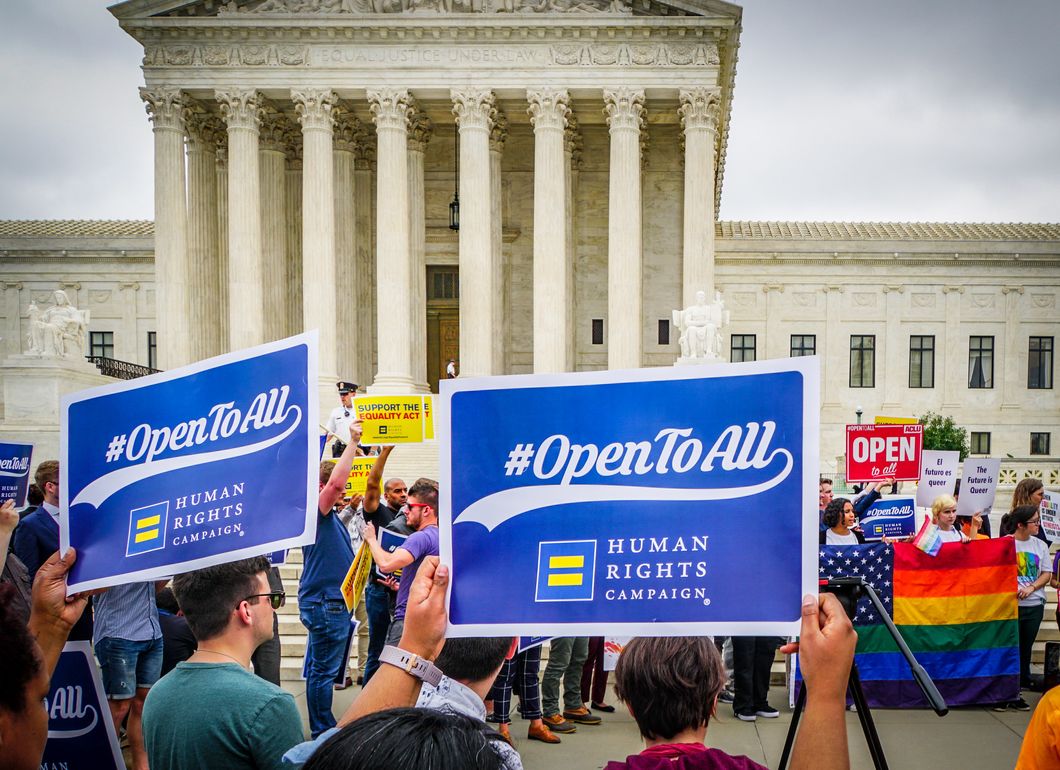Like many people, when the Supreme Court ruled that Masterpiece Cake Shop had a right to refuse to bake a wedding cake to a gay couple, I was stunned. I felt like this was not only a horrible blow to the LGBTQ community, but it was a huge blow to anti-discrimination in general. What kind of society do we live in where some bigot can just completely turn away a gay couple from his store? This is not what should be happening in 2018-- just bake the damn cake!!
At least, that was my first reaction. Then, I started to really think about the facts of the case and what it really means.
When first viewing the case, it seems pretty self-explanatory: man refuses service to someone because they are gay. That's an open and shut case of discrimination. However, perhaps it is not as simple as that. The baker did not entirely refuse all services to the couple, only the ones that conflicted with his deeply held religious beliefs. These were religious beliefs he made very open and apparent: his store featured Bible verses and his website mentioned how his faith guided his art. He told the couple he would be more than willing to bake them cookies, brownies, cupcakes, birthday cakes, anything except a wedding cake. Considering this, the man was not necessarily discriminating the couple from his shop, he just told them that he did not feel comfortable making the product that they requested. For that part, I reluctantly had to agree with the Supreme Court decision.
This is not to say that I agree with the man's personal and moral decision at all. On a moral level, I definitely think it is completely offensive to tell someone that they are not worth your cake because of their sexual orientation. That is just poor morals and poor business, considering all of the gay couples that he would be turning away.
However, from a legal perspective, I can definitely see the legal precedent that this would set: that the federal government could have the right to tell people that they must surrender their religious rights in their private business. What makes this case so much more complicated than the segregation cases of the 1960s: in these instances, there certainly does seem to be a conflict of rights between the rights of the gay couple to the 1st amendment rights of religion.
Because that is such a powerful value clash, I definitely see the benefit of the court ruling that this was not a place for the federal government to step in. This would create a murky interpretation of the 1st amendment and threaten both the free exercise clause and would bog down the court into a semantics argument over what truly constitutes a "deeply held religious belief." When listening to interviews from both sides, one quote from the baker really stood out to me: "This isn't about being able to discriminate against people, it's about not letting the government force me to do something that conflicts with my religious beliefs." While I hate to agree with the man on his reasoning for discrimination, I must agree with him on the dangers that this would cause for the relationship between government and free enterprise.
However, this is not to say that can be done to combat discrimination. On the contrary, while the government may not have a responsibility to impose its judgment onto the market, it is our duty as the consumer to factor these issues into our choices. That is the beauty of a free market: the consumer is the ultimate decider of who we are allowing to produce our goods.
As consumers, we must allow certain sacrifices to allow the market to make discrimination uneconomical. The government may not have a right to tell businesses what to do, but the invisible hand definitely does. While we may have to make certain sacrifices to make sure that the market reflects our morals and values, such as maybe not getting "the prettiest" wedding cake or having to spend a few extra dollars on a cake from a different baker, these are the sacrifices we must make to truly drive discrimination out of the market.

















